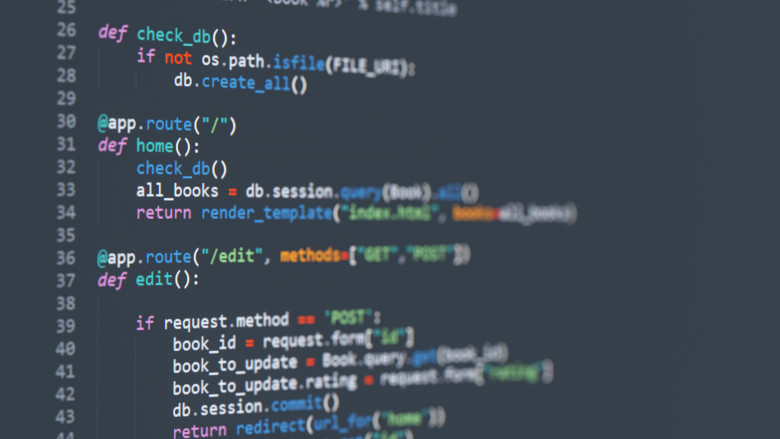views

In today’s digital-first world, coding is no longer a niche skill—it's a fundamental part of innovation, business, and daily life. From mobile applications to artificial intelligence and smart home automation, coding is the invisible force that drives the modern age. Whether you're a student, an entrepreneur, or a tech enthusiast, understanding the role of coding can unlock immense potential.
What is Coding?
Coding, also known as programming, is the process of giving instructions to a computer using a language it understands. These instructions, or “code,” enable the computer to perform specific tasks—ranging from displaying web pages to automating complex business processes.
Programming languages like Python, Java, C++, and JavaScript allow developers to build software, games, websites, and apps. Each language has its syntax, strengths, and ideal use cases. For example:
-
Python is favored for data science and machine learning.
-
JavaScript powers interactive websites.
-
Java is widely used in Android app development.
-
C++ excels in performance-heavy applications like gaming engines.
Why is Coding Important Today?
1. Technology is Everywhere
Every digital tool we use—mobile phones, online banking, ride-sharing apps, fitness trackers—is built using code. As the world becomes more tech-dependent, coding becomes the bridge between ideas and their implementation.
2. Empowers Innovation
Coding turns creativity into reality. Whether it’s a new mobile app that tracks mental health or an AI-powered chatbot for customer service, coding enables innovation that can change industries and lives.
3. Career Opportunities
Software development continues to be one of the most in-demand professions globally. Companies are actively hiring developers, data analysts, cloud engineers, and cybersecurity experts—all of whom rely on coding skills.
4. Problem Solving & Logic
Coding nurtures a structured mindset. It teaches how to break down big problems into smaller tasks and solve them logically. These problem-solving abilities are valuable in any career.
5. Automation of Repetitive Tasks
From automating email responses to handling inventory in warehouses, coding enables automation, saving time and reducing human error.
Types of Coding Careers
The world of coding is vast, offering several paths for specialization. Some of the key roles include:
-
Frontend Developer: Designs the visual aspects of websites and web applications.
-
Backend Developer: Focuses on server-side logic, databases, and APIs.
-
Full-Stack Developer: Skilled in both frontend and backend development.
-
Mobile App Developer: Specializes in apps for Android or iOS.
-
Data Scientist: Uses coding to analyze large data sets and derive insights.
-
DevOps Engineer: Automates the deployment and maintenance of applications.
-
Game Developer: Uses specialized languages and engines to build video games.
Learning to Code: Where to Begin
The good news is that learning to code has never been easier. Platforms, courses, and communities exist for every level—from beginner to expert. Here are some general steps to begin your coding journey:
Step 1: Choose a Language
Start with beginner-friendly languages like Python or JavaScript. They have simpler syntax and a large community for support.
Step 2: Practice Through Projects
Rather than focusing only on theory, build small projects. Create a to-do list app, calculator, or portfolio website. Projects help you understand how everything fits together.
Step 3: Use Online Resources
While there are countless free and paid resources, it's important to choose the right ones for your level and goal. Videos, tutorials, coding bootcamps, and forums are invaluable in accelerating learning.
Step 4: Join Coding Communities
Engage with others on platforms like GitHub, Stack Overflow, or Discord groups. Sharing code, asking questions, and contributing to open-source projects can vastly improve your skills.
Step 5: Keep Building
Coding is a hands-on skill. The more you build, debug, and refine, the more confident and capable you become.
How Businesses Are Benefiting from Code
Modern businesses across industries are using code to solve real-world problems. From retail and banking to healthcare and logistics, coding allows organizations to:
-
Build custom software
-
Automate manual workflows
-
Create mobile apps for customer engagement
-
Develop intelligent systems using AI
-
Visualize big data for strategic decision-making
Take, for example, Hexadecimal Software. This technology-focused company helps brands create customized solutions powered by modern coding technologies. Their team leverages a wide stack—from mobile app development to enterprise solutions—demonstrating how code turns business challenges into opportunities.
Smart Living with Code: The Rise of Home Automation
Another exciting application of coding is in smart home technology. Imagine controlling your lights, security systems, or appliances using your smartphone or voice commands. That’s all made possible through code.
Platforms like HexaHome use coding to deliver seamless smart home experiences. By integrating sensors, IoT devices, and intuitive mobile apps, they bring the future of home automation to today’s users. Behind the scenes, coding ensures that every device speaks the same language, understands user preferences, and functions without failure.
Future Trends in Coding
1. AI-Driven Development
With tools like GitHub Copilot and AI code generators, developers can write code faster and more efficiently. The future may involve more collaboration between human coders and AI assistants.
2. Low-Code/No-Code Platforms
These platforms allow users to build apps with minimal or no coding. While they simplify development, traditional coding will still be vital for complex customizations.
3. Quantum Computing
As quantum technology evolves, new programming paradigms will emerge, opening doors to solving problems previously considered impossible.
4. Ethical and Secure Coding
As technology becomes more ingrained in society, developers must prioritize ethical considerations and cybersecurity in their code to protect data and user rights.
Final Thoughts
Coding is no longer just a technical skill—it's a form of literacy in the digital age. Whether you’re building a startup, solving real-world challenges, or aiming for a high-paying job in tech, coding opens doors to endless possibilities. The beauty of code lies in its universality; it transcends borders and empowers anyone with a computer and curiosity.
By investing time in learning and understanding code, you're not just preparing for a career—you’re preparing to shape the future.



Comments
0 comment